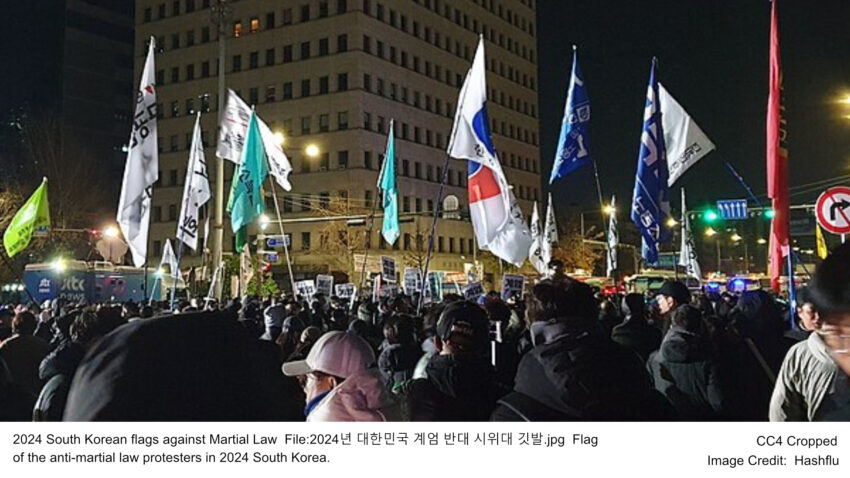South Korea experienced political turbulence when President Yoon Suk Yeol declared martial law, shocking the nation and stirring memories of past dictatorships. Late Tuesday night, Yoon accused opposition parties of “antistate” activities and announced emergency martial law. Thousands of citizens protested outside the National Assembly, demanding a return to democratic governance. The assembly quickly convened to overturn the decree, with some lawmakers even climbing through windows to reach the chamber.
- Martial Law Declared, Then Rescinded: President Yoon Suk Yeol’s declaration of martial law, citing “antistate” activities, shocked South Korea, evoking memories of its authoritarian past.
- Swift Backlash: The National Assembly, including members of Yoon’s own party, quickly overturned the decree, further isolating the president politically.
- Historical Resonance: The move stirred fears due to South Korea’s fraught history with martial law, last used in the deadly Gwangju crackdown of 1980.
- Impact on Yoon’s Presidency: Yoon’s approval ratings, already low, have likely suffered further, with analysts questioning the stability of his administration and the future of democracy in South Korea.
Reports from local media highlighted the swift rejection of Yoon’s decree by the National Assembly, including dissent from his own party members. This rejection significantly weakened Yoon’s political standing. The sudden imposition of martial law, reminiscent of South Korea’s authoritarian past, ignited fear and anger among the public. Although Yoon quickly rescinded the order, the episode is expected to have lasting impacts on his presidency.
Martial law’s historical weight in South Korea cannot be overstated. It was last declared in 1980 during a military crackdown on pro-democracy activists in Gwangju, an event that resulted in significant loss of life. Yoon’s declaration, made amid frustrations with an opposition-controlled Assembly, has drawn sharp criticism. Many viewed his actions as an overreach, further alienating him from the public and political allies alike.
Yoon’s presidency has been marred by scandals and political isolation since he took office in 2022. His approval ratings have plummeted, and the opposition’s control over the Assembly has stymied his agenda. The martial law declaration, seen as a desperate move to regain control, has backfired, leading to calls for his impeachment. Analysts suggest that Yoon may have miscalculated the political landscape, making it challenging to recover his position.
South Korea’s political landscape remains tense, with citizens and lawmakers questioning the future of democracy in the country. Despite lifting martial law, the damage to Yoon’s presidency appears substantial, with potential implications for South Korea’s political stability moving forward.
Sources:
- Local South Korean media reports on martial law declaration and protests.
- Historical context of the 1980 Gwangju crackdown.
- Statements from South Korean lawmakers and analysts.

